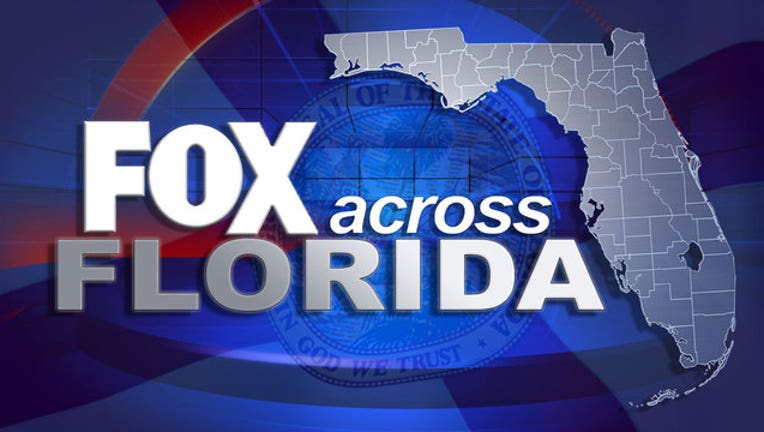Seminole Tribe gets big win in gambling dispute

TALLAHASSEE, Fla. (NSF) - Striking a blow to the state, a federal judge ruled Wednesday that the Seminole Tribe of Florida can continue to offer blackjack at its casinos for another 14 years.
U.S. District Judge Robert Hinkle's decision focused on controversial "designated-player" card games allowed at pari-mutuels throughout the state. The tribe has maintained that the games violate a 2010 agreement that gave the tribe exclusive rights to operate "banked" card games, such as blackjack, in exchange for paying $1 billion to the state.
A five-year agreement regarding the banked card games --- part of a larger, 20-year deal called a "compact" --- expired last summer, prompting the Seminoles to file the lawsuit. The state, meanwhile, filed a separate lawsuit asking the judge to order the tribe to shut down blackjack and other banked games, which the Seminoles have continued to operate.
Under the terms of the compact, the tribe is allowed to continue to operate the banked games if the state permits "any other person" to conduct such games.
In his 36-page ruling, Hinkle agreed with the Seminoles that the state-authorized designated player games triggered the exception to the five-year agreement. He ordered that the tribe be allowed to continue to conduct the banked games for the remainder of the compact's 20-year term.
"The Seminole Tribe is very pleased with Judge Hinkle's ruling and is carefully reviewing it. The Tribe believes the ruling provides for its future stability and ensures 3,600 Seminole Gaming employees will keep their jobs," tribe spokesman Gary Bitner said in a statement.
A spokeswoman for Gov. Rick Scott said his office is reviewing Hinkle's order.
Pari-mutuels --- allowed by state law to conduct games only in which players compete against each other --- first launched the designated-player games in 2011. Florida gambling regulators approved a rule governing the games in 2014.
The state's lawyers insist that the games, in which a player acts as the "bank," do not violate the compact, even if the manner in which they are being played at some cardrooms might.
But Hinkle, siding with the tribe, disagreed.
"The essential feature of a 'banked' game is this: The bank pays the winners and collects from the losers," he wrote.
Under Florida law, a "banking game" is defined as one "in which the house is a participant in the game, taking on players, paying winners, and collecting from losers or in which the cardroom establishes a bank against which participants play."
Lawyers for the state argued that a player acting as the bank does not establish a bank within the meaning of the statute.
But Hinkle rejected that, writing that the second part of the definition describes a game banked by anyone, including a player.
"When the cardroom devises and runs the games and sets the rules, including the requirement that a player act as the bank, the cardroom 'establishes' a bank. Any notion that players just happen in off the street and decide on their own to establish a bank is wholly fanciful," he wrote. "A 'poisoned apple' is a 'poisoned apple,' whether poisoned with arsenic, hemlock or something else. A 'banked game' is a 'banked game,' whether banked by the house, a player, or someone else."
And the judge blasted the state for arguing that only activities authorized by the Legislature --- not state regulators --- could violate the compact.
"It is inconceivable that the parties meant that the state, through the officials to whom it delegated the authority to regulate cardrooms, could allow cardrooms to conduct banked games, issue written assurances that the games comply with state law, adopt a rule approving the practice, but then assert that the exception was not triggered because the Legislature itself had not taken the action," he wrote.
The tribe agreed to pay the state $1 billion --- an amount it exceeded --- primarily for the right to avoid competition from the cardrooms.
While the pari-mutuels' designated-player games were not around at the time the compact was signed in 2010, the tribe "would not have entered the compact under those terms had it known this would be allowed" and "certainly did not intend this exclusive right to be easily evaded," Hinkle wrote.
Regulators in January and February filed complaints against more than two dozen pari-mutuel operators, alleging that the way the designated-player games were being conducted violated a legal prohibition against banked games. Those complaints and a move late last year by gambling regulators to repeal the rule touched off legal battles in state administrative courts.
During a trial in the Seminoles case last month, Hinkle said the rule appeared to be "an end run around the prohibition" against banked card games.
In Wednesday's order, he elaborated, focusing in part on one cardroom's requirement that potential designated players pass a background check and post a cash bond of $100,000 to act as the bank.
"The assertion that this game was just players competing against one another, without a 'bank' established by the facility, should have been a nonstarter. But the department assured the cardroom in writing that the game was compliant with Florida law. The assurance provided a 'safe harbor,' protecting the facility from prosecution for conducting an illegal banked game," Hinkle wrote.
Hinkle's ruling is not expected to have an immediate impact on the designated-player games, still underway in cardrooms around the state.
"We've had two Division of Administrative Hearings judges determine that the games can be played in conformance with Florida law. And that's what we're doing," lawyer John Lockwood, who represents numerous pari-mutuels that operate the games, told The News Service of Florida on Wednesday afternoon.
Information provided by The News Service of Florida.

